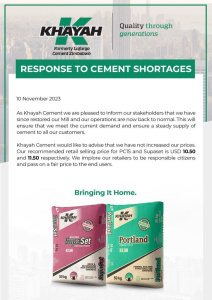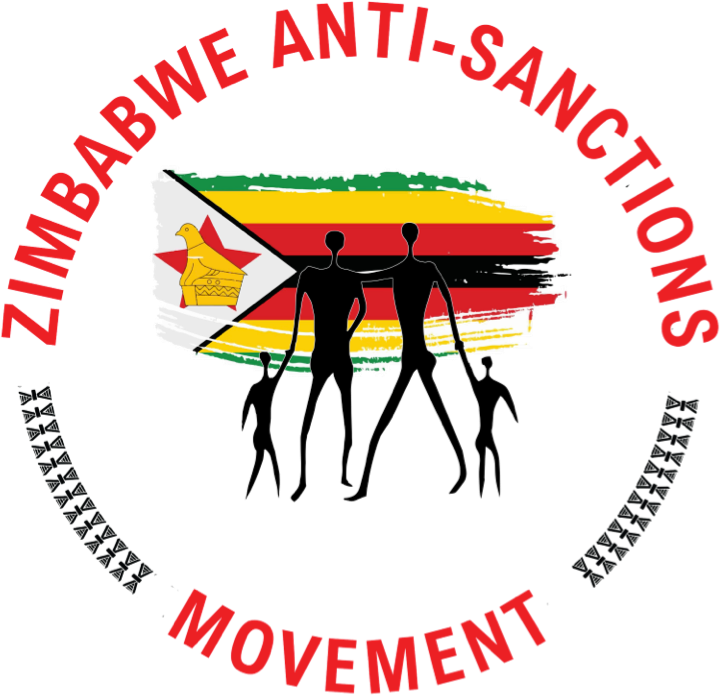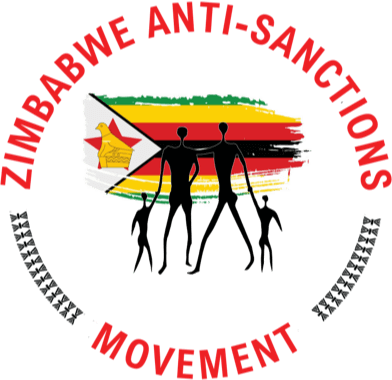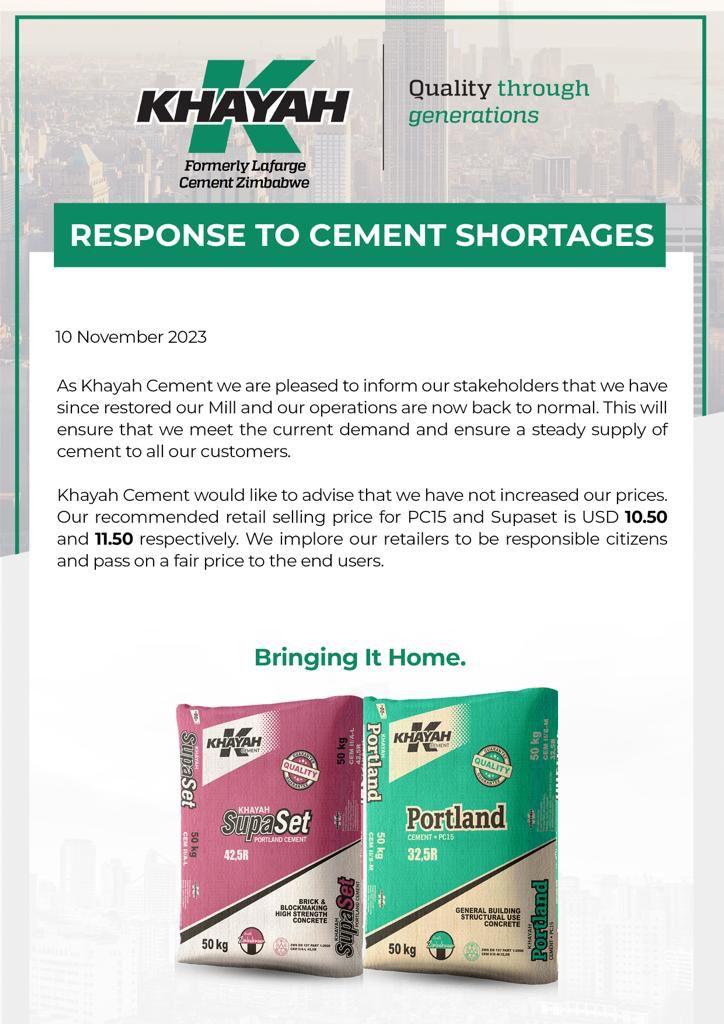
In light of Zimbabwe’s ongoing construction boom fueled by infrastructure projects, cement manufacturers have encountered supply-side challenges. Several leading companies in the sector reached out to the Zimbabwe Anti-Sanctions Movement (ZASM) to shed light on these issues.
𝟭. 𝗖𝗼𝗻𝘀𝘁𝗿𝘂𝗰𝘁𝗶𝗼𝗻 𝗕𝗼𝗼𝗺: The nation is experiencing a surge in construction, led by government projects like dam construction, the Manhize iron and steel plant, pipeline construction (Gwayi Shangani), mini hydro power plants at Lake Mutirikwi and Gwayi Shangani, renovations at Kariba Dam, railway upgrades from Hwange to Manhize, road development, the Mbudzi intersection, and private initiatives such as housing complexes, warehouses and offices. In response, cement manufacturers are investing in expanding production capacities.
𝟮. 𝗜𝗺𝗽𝗼𝗿𝘁 𝗠𝗲𝗮𝘀𝘂𝗿𝗲𝘀: Faced with the inability to meet local demand, manufacturers sought permission from the Ministry of Industry to allow traders to bring in temporary imports of cement while they import Clinker (lime) for manufacturing. This strategic move aims to address supply shortfalls while manufacturers import higher-grade Clinker to enhance local production while they upgrade their own Clinker production capacity.
𝟯. 𝗠𝗮𝗶𝗻𝘁𝗲𝗻𝗮𝗻𝗰𝗲 𝗖𝗵𝗮𝗹𝗹𝗲𝗻𝗴𝗲𝘀: Some companies, like #Khayah (former Lefarge), highlighted challenges in importing parts and tools for annual machine fleet maintenance due to sanctions. Despite these hurdles, maintenance is now complete and production is set to resume and Khayah reiterates that it’s prices to suppliers have not changed from $10.50.
𝟰. 𝗖𝗮𝗽𝗮𝗰𝗶𝘁𝘆 𝗨𝗽𝗴𝗿𝗮𝗱𝗲: Manufacturers are actively upgrading their production capacities to meet the escalating demand, aligning themselves with Zimbabwe’s National Development Strategies (NDS1 and NDS2) for industrialization.
𝟱. 𝗢𝗻-𝗦𝗶𝘁𝗲 𝗗𝗼𝗰𝘂𝗺𝗲𝗻𝘁𝗮𝘁𝗶𝗼𝗻: ZASM will conduct on-site visits at various factories next week, documenting the comprehensive restructuring and transformation taking place within this manufacturing sector. We will also study how they are dealing with the illegal sanctions on the country and their operations.
𝟲. 𝗟𝗲𝗴𝗮𝗹 𝗦𝘁𝗿𝗮𝘁𝗲𝗴𝗶𝗲𝘀: Discussions included the importance of sanctions entities officially applying to the U.S. Office of Foreign Assets Control (OFAC) for a review of punitive measures levied on them without trial.
Over and above suing banks, ZASM is also now exploring the prospect of litigation against sanctions implementers who deny Zimbabwean factories machines, tools, lubricants, inputs, replacement parts and loans in violation of WTO and other multilateral trade treaties.
ZASM recognizes international institutions such as the IMF and the World Bank’s stance against national policies that hinder global business and international trade. Plans are therefore underway to expand litigation efforts by targeting companies and nations that discriminate against Zimbabwean companies without due process, in implementing illegal sanctions as a tool to handicap the fundamental national right of economic development.
Zimbabwe Anti-Sanctions Movement remains committed to employing various strategies to combat this discriminatory hegemony.
More exciting information to come on this story.
#ZASMvsUSAandSAbanks #ZASMvsSanctionsImplementors





